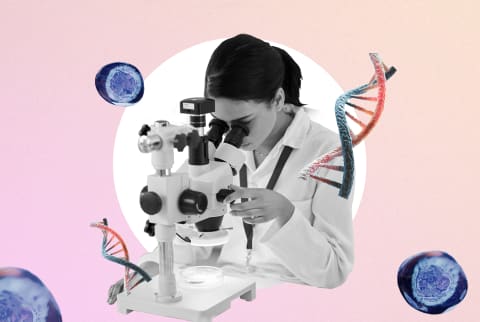Supported by The Human Genome Project (1990-2003)—an international research effort to determine the DNA sequence of the entire human genome—researchers began to better understand human nutrition at the molecular level of gene expression. Within the last three decades, nutrigenomics research has advanced the interest of personalized nutrition therapy, while confirming that food conveys powerful information used by the body. And it plays an instrumental relationship in our genes, too. Similarly, nutrigenetics is a personalized nutrition2 domain that examines the different phenotypic responses to diet (such as glucose levels, weight, or plasma cholesterol) depending on an individual’s genetic composition, dietary intake, and health outcomes. Like a remote control, the food we eat sends a genetic signal that can turn into different protein, gene, and metabolite modifications. In short, the nutrigenomic axiom is concerned with the influence of dietary elements on the genome1 that was born from the need to move beyond epidemiology and physiology to genetics and molecular biology3. For Lipman, nutrigenomics capability is “huge, as it can help individualize what types of nutrients (whether in food or supplements) can help different people.” Admittedly, moving away from a one-size-fits-all approach, “Nutrigenomics can help us target treatments to someone’s nutritional, genetic strengths and weaknesses,” he says. Further, the application of nutrigenomics to human health paves the way to better understand the interaction between metabolic processes and environmental influences, in both disease and optimal health. This has significant implications for developing more targeted treatment strategies for clients and patients. “Whether they’re recalling health information more accurately or having an increased awareness around how important diet and lifestyle changes are, nutrigenomics seems to pique client interest,” Hutlin says. “And the information they learn sticks with them when it’s combined with health counseling by a qualified, credentialed professional.” “It’s vital to work with a practitioner rather than just ordering a test online on your own and trying to figure it out or working with someone who isn’t a qualified health professional (with legitimate credentials),” says Hutlin. “Doctors, naturopaths, nurses, and registered dietitians are the most common health care providers who, if they specialize in nutrigenomics, can translate the results safely and effectively for you.” Functional medicine doctors are also leading the charge on these types of practices, notes Lipman. If you’re looking to gain a more profound, thorough understanding of nutrition science, mbg’s Functional Nutrition Training is the perfect path, designed to equip you with the tools and expertise necessary to learn the field and expand your education. The application of nutrigenomic strategies certainly shows potential for supporting human health. Creating deeper awareness of the interaction between diet, genetic background, and the microbiome is key to developing future research directions, therapeutic approaches, and preventive strategies.





